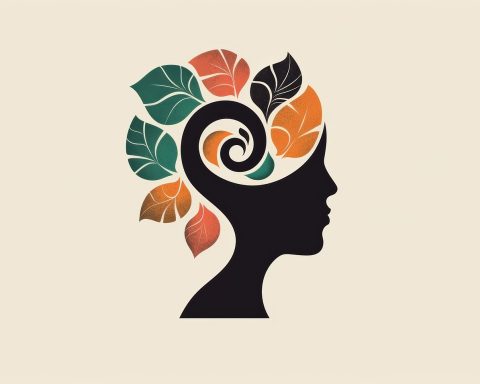Most of us know that to stay healthy, we need to exercise often and eat a balanced diet like this. It’s pretty obvious, right? Well, what fewer of us realize is that staying in shape and choosing sensible foods isn’t enough, not if we want to achieve better mental and physical health.
No, to enjoy a happier and healthier life, we need to bring a better sleep into the equation. And I’m not just talking about a one-off snoozefest, either. I’m talking about the kind of continuous, great-quality sleep, the amount that’s recommended to us by experts, on a regular basis.
Because sleep deprivation comes at a high price
Today’s society is conditioned to think that resting is weak; that we always have to keep moving, to make more, to consume more and so on. We work harder; we play faster, we stress more… and we sleep less. This, in turn, poses a lot of negative consequences, to both our physical and mental health.
For one, poor sleep can lead to physical illnesses such as diabetes and heart disease, not to mention the weakened immune system that leaves us open to a whole host of bugs and viruses. For another, according to the ADAA, sleep deprivation can actually cause mental disorders such as insomnia, anxiety, and depression (as well as being a symptom of each). Their research showed that some form of sleep deprivation is present in nearly all psychiatric disorders; so clearly, a lack of sleep has a big impact on our wellbeing.
Our body clocks keep us on track
Our natural circadian rhythms mean that we’re normally active during the daylight hours, and asleep when the light fades. They make us feel more awake as the day begins, and sleepier as the evening hours wear on. These circadian rhythms are like the wheels of our internal body clock. And when they’re out of whack, well, our bodies and minds suffer as a result.
In fact, research has shown that other systems in the body, like hunger, mental alertness, heart function, and immunity, plus our stress levels and mood, also operate on a daily rhythm. And things like shift work, a few late nights in a row (whether they’re spent partying or working too hard) and the effects of jet lag can throw this rhythm, and each of these systems, off. Even an hour of disruption can cause the mental function to decline, causing say, a traffic accident on your way to work.
One study in Australia found that getting 2 hours’ sleep less than normal had the equivalent effect on performance as 2 or 3 alcoholic beverages. You wouldn’t drive after 2 or 3 drinks, would you? (I’m hoping the answer is “no.”) So why would you drive when sleep-deprived?
Human beings have a dark-light, sleep-wake cycle for a reason
And when we disrupt it, our health suffers. Whether it’s disrupting our immune system and our hormones, impacting our mood and behaviors or influencing our cognitive ability to make healthier choices, our body clock has a big impact on our overall well-being.
So here are a few ways you can keep that clock functioning like a well-oiled machine, to get a better sleep every night, and to stay healthier as a result.
1. Stick to one bedtime
If you’re going to bed at dawn 2 nights a week, obviously your body clock will be confused! There’s no point in having a nice and early bedtime on weekdays if you’re going to all-night raves over the weekend. Of course, there’s nothing wrong with the occasional night out but do consider that those late nights will catch up to you eventually. Try to set bedtime that gives you the recommended 7-9 hours of sleep, and stick to the same bedtime every night.
And while Sunday morning lie-ins are very tempting, try to resist the urge to sleep until noon; you’ll only struggle with getting to sleep that night, meaning you’ll already start off the week on the wrong foot.
2. Turn off those electronics
This can be a hard step for many, but it’s crucial if you want to keep your body clock in check. Since the blue light that these devices emit can disrupt our circadian rhythms, overstimulating the mind and block our production of melatonin, they’re pretty damaging to our sleep cycle. And since many of us have fallen into bad sleep habits, like checking our phone right up until lights out, or watching TV in bed, perhaps that’s one reason why we’re going to bed more anxious and restless than ever before.
So for better sleep, a smoother body clock and a healthier you, power down at least an hour before bedtime. You won’t regret it.
3. Nap when you can
If your job involves shift work and late nights/early mornings, well, sometimes you can’t help a disrupted body clock. Likewise, if you’re traveling, a different time zone will mess up your sleep cycle regardless of the bedtime you set or the devices you switch off!
In these situations, take advantage of power naps. Use them when you feel tired during the day, to catch up on lost rest, and you’ll feel the benefits in no time. Because while naps should never replace a good night’s sleep, they can keep you in better health in case you miss out on any. Just make sure you don’t nap for too long during the day; otherwise, you risk throwing your body clock off further!
Time to rest…
It’s a universal truth: in order to stay healthy, we need to sleep properly. Sleep is right up there with exercise and diet in terms of importance to our overall health. So no matter when you fall asleep, or what you fall asleep on (something like this for example), remember the importance of sleep; how it can be the difference between a healthy and happy you and, well… quite the opposite!
So may you have the sweetest of dreams… tonight, and every night.








